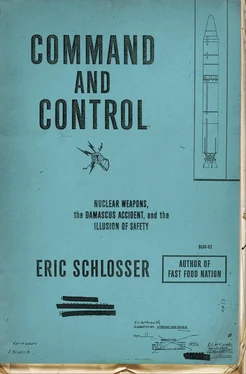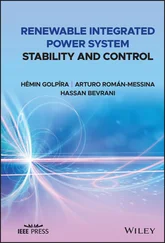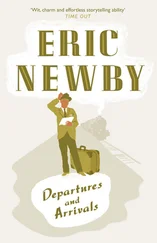The Republican candidate for president, Ronald Reagan, had a sunnier disposition. “I refuse to accept [Carter’s] defeatist and pessimistic view of America,” Reagan said. The country could not afford “four more years of weakness, indecision, mediocrity, and incompetence.” Reagan called for large tax cuts, smaller government, deregulation, increased defense spending to confront the Soviet threat, and a renewed faith in the American dream. A popular third-party candidate, Congressman John B. Anderson, described himself as a centrist, labeling Reagan a right-wing extremist and Carter “a bumbler.” Anderson agreed that things had gone fundamentally wrong in the United States. “People feel that the country is coming apart at the seams,” he said.
The nation’s underlying anxiety fueled sales of a bestselling nonfiction book in late September: Crisis Investing: Opportunities and Profits in the Coming Great Depression . A number of bestselling novels also addressed the widespread fears about America’s future. The Devil’s Alternative , by Frederick Forsyth, described a Soviet plot to invade Western Europe. The Fifth Horseman , by Larry Collins and Dominique Lapierre, described a Libyan plot to blackmail the United States with a hydrogen bomb hidden in New York City. The Spike , by Arnaud de Borchgrave and Robert Moss, told the story of a left-wing American journalist who uncovers Soviet plans for world domination but cannot persuade his liberal editor to publish them.
Perhaps the most influential bestseller of the year was The Third World War: August 1985 , a novel written by a retired British officer, General Sir John Hackett. It offered a compelling, realistic account of a full-scale war between NATO and the Soviet bloc. After a long series of European tank battles, the British cities of Birmingham and Wolverhampton are incinerated by a Soviet nuclear strike. The Russian city of Minsk is hit by nuclear weapons in retaliation, and the shock of its destruction causes the swift collapse of the Soviet Union. The moral of the story was clear: the United States and its allies needed to increase their military spending. “In the last few years before the outbreak of war the West began to wake up to the danger it faced,” Hackett wrote, “and in the time available did just enough in repair of its neglected defenses to enable it, by a small margin, to survive.” Ronald Reagan later called The Third World War an unusually important book. And it helped to launch a new literary genre, the techno-thriller, in which military heroism was celebrated, the intricate details of weaponry played a central role in the narrative, and Cold War victories were achieved through the proper application of force.
On television, The Waltons , a long-running drama about an ordinary family’s struggles during the Great Depression, was facing cancellation. Instead of worrying about how the show’s young protagonist, John-Boy, would overcome adversity, American viewers were now far more interested in who’d shot J.R., the wealthy lead character of a new series, Dallas . Other family dramas about the rich and dysfunctional soon followed: Dynasty , Falcon Crest , The Colbys . Situation comedies dealing with topical or working-class issues — like M*A*S*H , Maude , Sanford and Son , All in the Family — were relics of a different era. In Hollywood, the year 1980 marked the end of the highly personal, director-driven filmmaking of the previous decade. Aside from Martin Scorsese’s Raging Bull and Robert Redford’s Ordinary People , due to open on September 19, the most notable movies were big-budget comedies, action pictures, and sequels like Smokey and the Bandit II .
The popular music of a historical moment can be more memorable and evocative than its books, politics, or films. A number of songs released in 1980 had the ability to worm their way into your brain and resist all attempts to dislodge them: “Do That to Me One More Time,” by Captain & Tennille; “You May Be Right,” by Billy Joel; “Sailing” and “Ride Like the Wind,” by Christopher Cross. Disco was finally dead, its fate sealed by the closing of the nightclub Studio 54 and the opening of Can’t Stop the Music , a movie starring the Village People. Punk was dead, too, and taking its place was the lighter, dance-oriented New Wave of Devo, The Police, The B-52’s, and Talking Heads. The hard rock of The Rolling Stones had given way to the softer pop sounds of “Emotional Rescue.” Led Zeppelin broke up, transforming Van Halen into America’s favorite heavy metal band. Turning the radio dial, on almost every FM station, you could hear rough edges becoming smooth. Outlaw country no longer threatened the Nashville establishment. It had fully entered the mainstream, with Willie Nelson’s hit “On the Road Again” and Waylon Jennings’s “Theme from the Dukes of Hazzard.” Bob Dylan now refused to sing any of his old songs. Born again and on the road, he played only gospel. John Lennon was in New York City, recording a new album for the first time in years and looking forward, in a few weeks, to his fortieth birthday. “Life begins at forty,” Lennon told an interviewer. “It’s like: Wow! what’s going to happen next?”
In retrospect, it’s easy to say that a particular year marked a turning point in history. And yet sometimes the significance of contemporary events is grasped even in the moment. The United States of the 1960s and the 1970s, with its liberalism and countercultural turmoil, was about to become something different. The year 1980, the start of a new decade, was when that change became palpable, in ways both trivial and telling. During the first week of September, the antiwar activist and radical Abbie Hoffman surrendered to federal authorities after more than six years on the run. Before turning himself in, Hoffman sat for a prime-time television interview with Barbara Walters. Another radical leader, Jerry Rubin, had recently chosen a different path. In 1967, Hoffman and Rubin had tossed dollar bills over the balcony at the New York Stock Exchange as a protest against the evils of capitalism. In 1980, Rubin took a job as an investment analyst on Wall Street. “Politics and rebellion distinguished the ’60’s,” he explained in the New York Times . “Money and financial interest will capture the passion of the ’80’s.” Rubin had once again spotted a cultural shift and tried to place himself at its cutting edge. At the time, the highest-paid banker in the United States was Roger E. Anderson, the head of Continental Illinois National Bank, who earned about $710,000 a year. The incomes on Wall Street would soon rise. Suits and ties were back in fashion. Mustaches, beards, and bell-bottoms had become uncool, and an ironic guide to the new zeitgeist, The Official Preppy Handbook , was just arriving in stores. During a speech at the Republican convention that summer, Congressman Jack Kemp had noted what others did not yet acknowledge or see: “There is a tidal wave coming, a political tidal wave as powerful as the one that hit in 1932, when an era of Republican dominance gave way to the New Deal.”
At the predeparture briefing, Childers and his crew learned that “major maintenance” was scheduled at Launch Complex 374-5 that day. The missile was being taken off alert so that the reentry vehicle containing its warhead could be replaced. For an instructor crew, major maintenance was a waste of time. Lieutenant Serrano was training to become a deputy missile combat crew commander, and he needed to practice routine tasks in a control center. Captain Mazzaro found a commander who would switch complexes. Instead of 4–5, the instructor crew would go to 4–7, outside Damascus. The change of plans solved the training issue but delayed the departure of both crews. Entry codes had to be swapped, duty orders rewritten and authenticated. The only important difference between the two launch complexes was their distance from Little Rock Air Force Base. Four-seven was a lot farther away, which meant Childers and his crew probably wouldn’t be getting home until noon the next day.
Читать дальше












